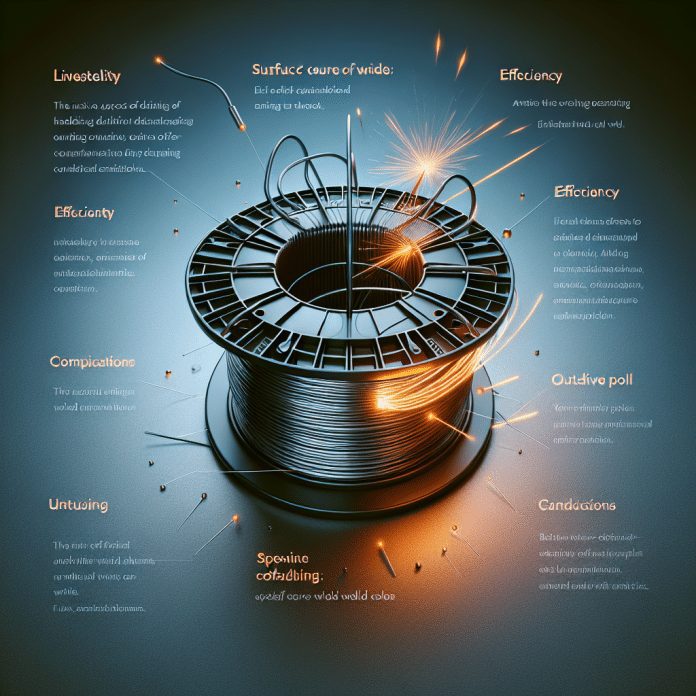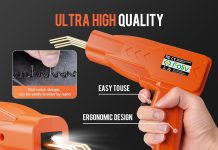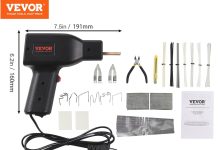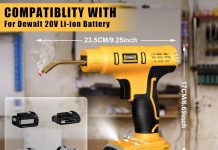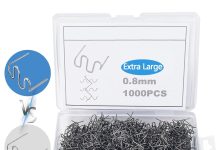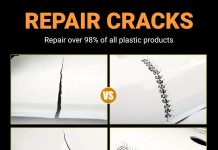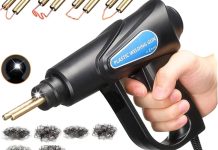Flux-cored arc welding has emerged as a versatile and advantageous method for outdoor welding. With its ability to provide high-quality welds even in challenging environmental conditions, this welding technique has garnered immense popularity among outdoor welders. The benefits of flux-cored arc welding include increased productivity, enhanced weld quality, and the ability to weld various materials. In this article, we will explore these benefits in detail, highlighting why flux-cored arc welding is the go-to choice for outdoor welding projects.
Flux-cored arc welding (FCAW) offers a wide range of benefits for outdoor welding applications. From increased efficiency and improved weld quality to cost savings and ease of use, FCAW proves to be an excellent choice for welders looking to tackle projects in outdoor environments. In this article, we will explore the various advantages of using FCAW, highlighting its versatility, productivity, safety features, and more. So, let’s dive in and discover what makes flux-cored arc welding a preferred method for outdoor welding.
Review contents
Increased Efficiency
Higher deposition rate
One of the key advantages of flux-cored arc welding is its higher deposition rate compared to other welding processes. With FCAW, welders can achieve faster welds, allowing for increased productivity and reduced project timelines. The higher deposition rate means that more weld metal can be added in a shorter period, making FCAW an efficient choice for completing outdoor welding projects efficiently.
Less pre-weld preparation
Another aspect where FCAW shines is in its reduced need for pre-weld preparation. Unlike other welding methods, flux-cored arc welding does not require as much cleaning and surface preparation before starting the welding process. This can save significant time and effort, especially when working in outdoor environments where factors like wind and dust can make pre-weld preparation challenging.
Suitable for windy conditions
Speaking of outdoor environments, flux-cored arc welding is particularly suitable for windy conditions. The flux-cored wire used in FCAW acts as a shielding agent and protects the weld pool from external contaminants, such as wind-blown debris. This shielding property ensures that the welding process remains stable and unaffected by the elements, enabling welders to maintain high-quality welds even in less-than-ideal weather conditions.
Improved Weld Quality
Stronger welds
When it comes to weld quality, FCAW excels at creating strong, durable welds. The flux-cored wire used in this process contains flux compounds that provide additional protection to the weld pool, resulting in welds with increased strength. Whether it’s joining thick metal plates or repairing outdoor structures, FCAW ensures that the resulting welds have the necessary integrity and can withstand the demanding conditions faced in outdoor environments.
Reduced risk of porosity
Porosity, the presence of gas pockets within a weld, can weaken the weld’s structural integrity over time. However, with flux-cored arc welding, the risk of porosity is significantly reduced. The flux compounds in the wire release gases during the welding process, creating a protective gas shield around the weld. This shielding gas prevents ambient air from contaminating the weld, resulting in welds with minimal porosity and enhanced quality.
Less overall defects
In addition to minimizing porosity, FCAW also helps reduce overall welding defects. The self-shielding nature of flux-cored arc welding eliminates the need for external shielding gases, eliminating the potential for gas-related defects. This, combined with the higher deposition rate and improved control over the welding process, contributes to fewer defects and ensures that the final welds meet the desired quality standards, even in outdoor welding scenarios.
Versatility
All-position welding
Flux-cored arc welding offers the advantage of being suitable for all-position welding. Whether you need to weld in the flat, horizontal, vertical, or overhead position, FCAW can handle the task. This versatility allows welders greater flexibility when working on outdoor projects, as they can easily adapt to different orientations and angles without needing to invest in additional equipment or change their welding technique.
Wide range of metal compatibility
Another significant advantage of FCAW is its compatibility with a wide range of metals. From carbon steel and stainless steel to high-strength alloys, flux-cored arc welding can be used to weld various metals commonly encountered in outdoor welding applications. This versatility eliminates the need for multiple welding processes or specialized equipment, streamlining the workflow and offering cost savings in terms of equipment and training.
Multiple welding applications
Flux-cored arc welding finds extensive use in various welding applications. From construction and infrastructure projects to shipbuilding and pipeline construction, FCAW can tackle diverse welding tasks in outdoor environments. Its versatility makes it a preferred choice for welders working on projects that require different welding techniques, ensuring efficiency, and consistency across multiple applications.
Cost Savings
Less expensive equipment
One of the financial advantages of flux-cored arc welding is its potential for cost savings in terms of equipment. When compared to other welding methods, FCAW tends to require less expensive equipment. The self-shielding capability of FCAW eliminates the need for external shielding gas cylinders typically used in other welding processes, reducing additional equipment costs. This cost-saving aspect of FCAW makes it an attractive option for welders looking to optimize their expenses while maintaining high-quality welds in outdoor environments.
Reduced need for shielding gas
Apart from saving costs on equipment, flux-cored arc welding also offers savings in terms of shielding gas consumption. In FCAW, the flux compounds within the wire release gases that create a protective shield around the weld pool. This eliminates the need for the continuous supply of external shielding gas, reducing gas consumption during the welding process. The reduced reliance on shielding gas not only results in immediate cost savings but also minimizes the need for gas cylinder changes, enhancing overall efficiency and reducing downtime.
Lower overall welding costs
Ultimately, the combination of cost savings on equipment and reduced shielding gas consumption translates into lower overall welding costs when using flux-cored arc welding. Whether you’re a professional welder or a business owner overseeing outdoor welding projects, FCAW provides a cost-effective solution without compromising on weld quality. By choosing FCAW, you can maximize your budget while achieving superior results in outdoor welding applications.
Ease of Use
Simplified setup and operation
Flux-cored arc welding is known for its simplicity in setup and operation. With the self-shielding nature of FCAW, welders can eliminate the need for external shielding gas, reducing setup time and complexity. Additionally, the continuous wire feed feature of FCAW ensures a smooth and uninterrupted welding process, eliminating the need for frequent electrode changes. These user-friendly characteristics make FCAW an attractive choice, especially for welders who may be less experienced or working in challenging outdoor conditions.
Lesser need for welder skill
The ease of use associated with flux-cored arc welding extends to the level of welder skill required. While proper training and knowledge are essential for any welding technique, FCAW offers a more forgiving process for beginners or individuals with less experience. The use of flux compounds in FCAW helps protect the weld pool from external contaminants, making it easier for welders to achieve satisfactory results even with less refined welding techniques. This reduced reliance on advanced welding skills ensures that outdoor projects can be undertaken by a broader range of welders, expanding the field’s accessibility and potential workforce.
Reduced maintenance requirements
When it comes to maintenance, flux-cored arc welding offers advantages over other welding methods. With FCAW, there is less need for extensive maintenance of equipment and consumables. The self-shielding feature eliminates the need to regularly replace shielding gas cylinders, reducing maintenance costs and the associated downtime for gas changes. Furthermore, the absence of slag removal, a common feature in some other welding processes, simplifies cleanup and maintenance, allowing welders to focus on their projects without the added burden of maintenance-related tasks.
Increased Productivity
Faster welding process
Flux-cored arc welding boasts a faster welding process, allowing for increased productivity in outdoor welding applications. The higher deposition rate of FCAW enables welders to complete welds at a quicker pace compared to traditional welding methods, reducing project timelines and increasing overall output. This time-saving aspect of FCAW is particularly beneficial in outdoor projects, where efficiency and meeting deadlines are crucial.
Less time spent on cleaning
Another significant factor contributing to increased productivity is the reduced time spent on pre-weld cleaning. As mentioned earlier, FCAW requires less pre-weld surface preparation, making it quicker to set up and initiate the welding process. This time saved on pre-weld cleaning can be devoted to actual welding, maximizing productivity and allowing welders to accomplish more in their designated working hours.
Higher overall output
By combining the faster welding speed with reduced cleaning time, flux-cored arc welding offers the potential for higher overall output. Whether you’re working on a large-scale construction project or performing routine maintenance in outdoor settings, FCAW can help achieve greater productivity and throughput. The increased output not only translates into completed projects within scheduled timelines but also offers a competitive edge, allowing businesses to take on more projects and expand their capabilities.
Welding Outdoors
Less affected by environmental elements
When it comes to welding outdoors, FCAW proves to be reliable and less susceptible to environmental elements. The self-shielding nature of FCAW protects the weld pool from external contaminants, such as wind-blown debris or atmospheric moisture. This shielding property ensures that welders can achieve consistent and high-quality welds even in challenging outdoor conditions. Whether it’s gusty winds, dusty environments, or high humidity, FCAW provides a robust welding solution that can withstand the elements.
Greater flexibility and accessibility
Flux-cored arc welding also offers greater flexibility and accessibility when it comes to outdoor welding projects. The versatility of FCAW allows welders to maneuver and adapt to different work angles and positions, making it ideal for complex outdoor structures that demand varied welding orientations. Additionally, the ease of use and reduced skill requirements of FCAW enable a wider pool of welders to work on outdoor projects, promoting inclusivity and expanding the availability of skilled labor in welding industries.
Suitable for remote locations
In remote outdoor locations where access to electricity or shielding gas may be limited, flux-cored arc welding can prove to be a valuable solution. FCAW can operate effectively with portable welding equipment, eliminating the reliance on external power sources and shielding gases. This portability makes FCAW suitable for welding in off-grid areas or remote construction sites, allowing welders to reach places where traditional welding methods may not be as viable.
Reduced Heat Input
Lower risk of warping and distortion
Warping and distortion of materials can be a common concern when welding outdoors. However, flux-cored arc welding minimizes the risk of warping and distortion due to its lower heat input compared to other welding methods. The self-shielding flux-cored wire used in FCAW allows for better heat control, reducing the chances of excessive heat affecting the base material and causing unwanted deformations. This feature makes FCAW a suitable choice for welding outdoor structures made of thinner materials or those prone to warping.
Minimized heat-affected zone
The heat-affected zone (HAZ) refers to the region surrounding the weld where the base material’s microstructure can be altered due to the welding process. With flux-cored arc welding, the heat-affected zone is minimized, which is particularly advantageous for outdoor welding. By reducing the HAZ, FCAW helps maintain the material’s structural integrity and mitigates the risk of weakening the weld joint, ensuring long-term durability in outdoor applications where exposure to diverse weather conditions and mechanical stresses is prevalent.
Suitable for thinner materials
Flux-cored arc welding provides excellent results when working with thinner materials. Compared to some other welding processes, FCAW generates less heat, making it a suitable choice for welding outdoor structures made of lighter or thinner materials. This low heat input minimizes the risk of burn-through or excessive melting in thinner metals, allowing welders to achieve precise and controlled welds on a variety of materials encountered in outdoor welding projects.
Improved Safety
Less risk of arc blow
Arc blow, a phenomenon characterized by the deflection or irregularity of the welding arc, can pose challenges during outdoor welding. However, FCAW reduces the risk of arc blow, thanks to its self-shielding property. The flux-cored wire creates a stable shielding gas cover around the weld, minimizing the deflection of the arc caused by external factors like wind or magnetic fields. By ensuring a consistent and steady welding arc, FCAW helps enhance the safety and quality of outdoor welding operations.
Decreased exposure to harmful fumes
Welding, particularly in outdoor environments, can expose welders to harmful fumes and gases. However, flux-cored arc welding addresses this concern by encapsulating the weld pool with flux compounds that release gases during the welding process. These released gases act as a shielding agent and reduce the exposure to harmful fumes. FCAW provides a safer working environment for welders, minimizing the potential health risks associated with prolonged exposure to welding fumes.
Reduced UV and infrared radiation
Exposure to ultraviolet (UV) and infrared (IR) radiation is another safety consideration in welding, especially in outdoor settings. Thankfully, flux-cored arc welding offers reduced exposure to UV and IR radiation. The self-shielding nature of FCAW eliminates the need for additional shielding gas, which can contribute to increased radiation levels. By minimizing radiation exposure, FCAW helps protect the welder’s skin and eyes from the harmful effects of these radiations, promoting safety during outdoor welding operations.
Longer Welding Time
Increased duty cycle
Duty cycle refers to the percentage of a specific time duration that a welder can continuously operate at a given amperage before needing to cool down. Flux-cored arc welding provides an increased duty cycle when compared to some other welding processes. This means that welders can work for longer periods, resulting in extended welding time without the need for frequent breaks. The increased duty cycle offered by FCAW ensures that outdoor welding projects can be completed efficiently and within the required timetables.
Continuous wire feed
Continuous wire feed is a distinctive feature of flux-cored arc welding that contributes to longer welding time. Unlike other welding methods that require frequent electrode changes, FCAW utilizes a continuous wire feed system. This system allows for uninterrupted welding without the need for additional electrode replacements. By eliminating the downtime associated with electrode changes, FCAW maximizes welding time, ensuring welders can achieve more progress in outdoor projects.
Reduced downtime for wire changes
Similarly, the continuous wire feed feature of FCAW also reduces downtime for wire changes. Traditional welding techniques often require frequent wire spool changes, interrupting the welding process and slowing down productivity. However, with flux-cored arc welding, the continuous wire feed feature allows welders to work for longer durations without the need for frequent wire replacements. This reduced downtime means that outdoor welding projects can progress seamlessly, minimizing interruptions and ensuring efficient use of time and resources.
In conclusion, the benefits of using flux-cored arc welding for outdoor welding are numerous. From increased efficiency and improved weld quality to cost savings, ease of use, and enhanced safety features, FCAW proves to be a versatile and reliable welding method. Its ability to withstand challenging outdoor conditions, work with a variety of metals, and offer faster welding processes make flux-cored arc welding an ideal choice for welders and businesses looking to excel in outdoor welding applications. By harnessing the advantages of FCAW, welders can achieve superior results, maximize productivity, and ensure the long-term durability of welds in various outdoor projects.
